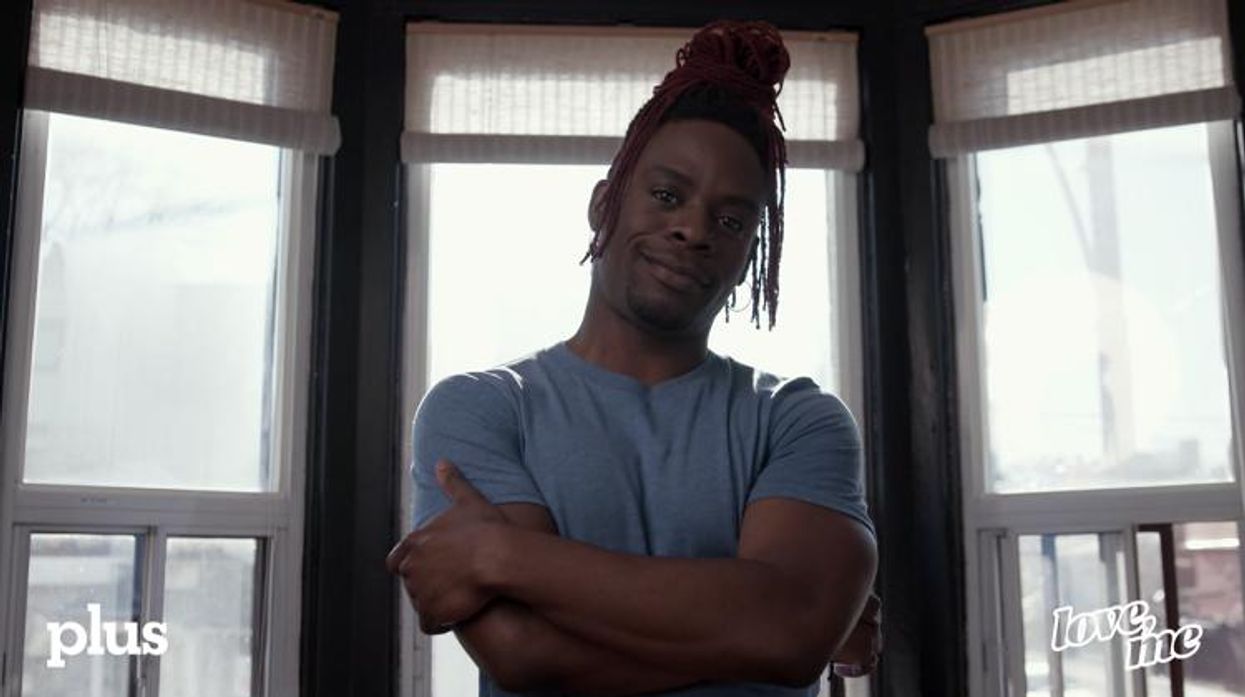Love, Me
Treatment GuideJust DiagnosedSex & DatingAfrican AmericanStigmaAsk the HIV DocPrEP En EspañolNewsVoicesPrint IssueVideoOut 100
CONTACTCAREER OPPORTUNITIESADVERTISE WITH USPRIVACY POLICYPRIVACY PREFERENCESTERMS OF USELEGAL NOTICE
© 2025 Pride Publishing Inc.
All Rights reserved
All Rights reserved
Scroll To Top
By continuing to use our site, you agree to our Private Policy and Terms of Use.
May 27 2021 12:51 PM EST
May 31 2023 2:41 PM EST
Directed by Kelly Teacher for Plus.
For Dizz, a member of the queer-centered pop band rIVerse, depression first entered his life at age 14.
“I had come out as gay to my family,” the musician says. “And the reaction to that was devastating. Most of my family immediately turned their backs and I remember my father said he knew he wasn’t mine. And that really was a turn in my life at that time and the depression and the suicidal thoughts started to creep in.”
Dizz shared his experiences with depression — and how he eventually found ways to manage it — as part of the new Pride Media series, “Love, Me.” The videos, appearing on Advocate.com, Out.com, and HIVPlusMag.com, hope to break the taboo of depression in the queer community and present tools for those with treatment-resistant depression. While the COVID-19 pandemic has initiated many stories in mainstream media about mental health, the toll of depression within the LGBTQ+ community is a tale seldom told, even though it’s pervasive.
“There is a stigma around seeking any kind of help professionally, with a psychiatrist or psychologist,” says Dizz, who compares the shame around mental health struggles with the self-blame that can come with an HIV diagnosis.
The widespread experience of depression underscores the need to bring the issue out of the darkness.
Statistics from the Human Rights Campaign show that one in three LGBQ adults live with a mental illness, compared to one in five among the general population — the disparity is even more pronounced among transgender adults, where nearly 40 percent reporting severe psychological distress at some point. Dizz’s experience as a teenager aren’t rare, either; 28 percent of LGBTQ+ youth reported feeling depressed most of the time.
The situation is not hopeless, Dizz says. Even though depression became a regular part of his life after his coming out, he’s found solace in bike-riding, making music, and commiserating with his bandmates and other members of his found family.
“The biggest lesson that I’ve learned about myself in all this, and how to deal with my struggles in more healthy ways moving forward, and what I’ve adopted to help me get me to this place is really just the power of vulnerability,” Dizz says. “Really just allowing yourself to be vulnerable and removing the façade and just speaking the truth. What is that you’re going through? What is it that you’re feeling? And just talk about it. The vulnerability, for me, was the key to finding that self-love.”
If you have or are contemplating suicide, please know there is a well of support out there to help. The National Suicide Prevention Lifeline at (800) 273-8255 can be reached 24 hours a day by people of all ages and identities. If you are a trans or gender-nonconforming person considering suicide, the Trans Lifeline can be reached at (877) 565-8860. The Trevor Project is the world's largest suicide prevention and crisis intervention organization for LGBTQ+ youth (ages 24 and younger). Trained counselors at the Trevor Project Lifeline can be reached 24/7 at (866) 488-7386, by texting START to 678678, or via the TrevorChat instant messaging service at TheTrevorProject.org/Help.
Latest Stories
HRC holds 'die-in' to protest Trump health care cuts
April 28 2025 2:11 PM
The Talk Season 5 premieres this spring with HIV guidance for the newly diagnosed
March 26 2025 1:00 PM
Jess King is here to help you live your happiest, healthiest life yet
March 24 2025 4:35 PM
Gerald Garth is keeping people of color happy and healthy through trying times
March 11 2025 3:38 PM
Plus nominated for 2025 GLAAD Media Award
January 22 2025 12:42 PM
'RuPaul's Drag Race' star Trinity K Bonet quietly comes out trans
December 15 2024 6:27 PM
AIDS Memorial Quilt displayed at White House for the first time
December 02 2024 1:21 PM
Two right-wing Supreme Court justices signal they may uphold access to PrEP and more
April 21 2025 4:10 PM
500,000 Children at Risk: PEPFAR Funding Crisis
April 08 2025 3:51 PM
Discover the power of Wellness in your life
March 26 2025 12:41 PM
BREAKING NEWS: Trump admin moves to end federal HIV prevention programs
March 18 2025 6:10 PM
Celebrating Black History Month with our annual African American issue
February 01 2025 3:28 PM
Tyler TerMeer vows to continue to fight for health care for all
January 28 2025 3:00 PM
A camp for HIV-positive kids is for sale. Here's why its founder is celebrating
January 02 2025 12:21 PM
Broadway's best raise over $1 million for LGBTQ+ and HIV causes
April 03 2025 7:15 PM
Season 4 of The Switch on resilience & radical self-love returns this spring
March 26 2025 12:20 PM
Trump's orders prompt CDC to erase HIV resources
January 31 2025 5:29 PM
Lexi Love comes out as HIV+ after Trump deletes federal resources
January 23 2025 11:23 AM
This long-term HIV survivor says testosterone therapy helped save his life.
December 16 2024 8:00 PM
Ricky Martin delivers showstopping performance for 2024 World AIDS Day
December 05 2024 12:08 PM





















